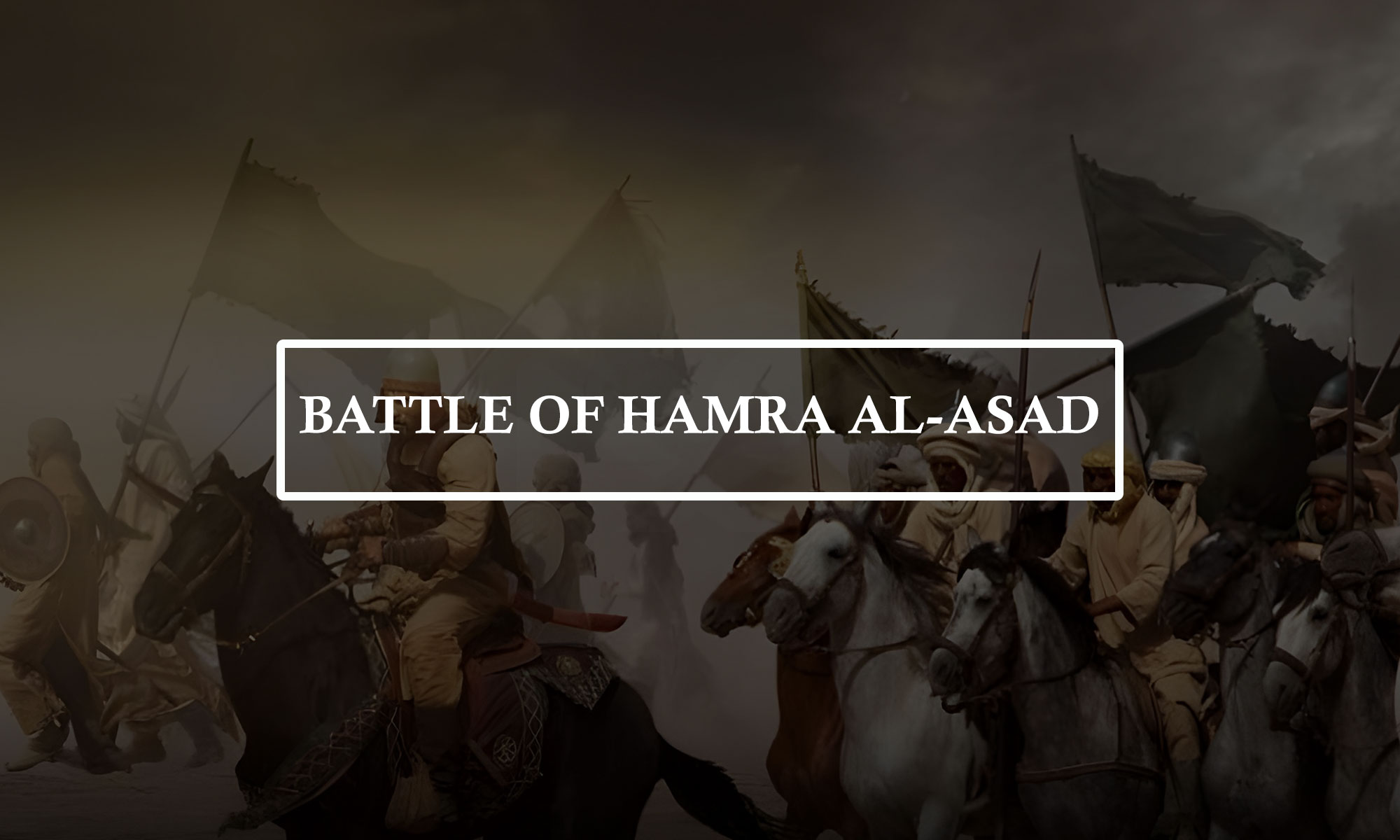The Reason for the Battle of Hamra Al-Asad
The Battle of Hamra Al-Asad occurred on the sixteenth day of the month of Shawwal on a Sunday in the third year of the Hijrah (migration). It was a response to the losses suffered by the Muslims in the Battle of Uhud, which took place one day before. The Muslims went to the area of Hamra Al-Asad, located about eight miles from the city of Al-Madinah, to restore their reputation, boost their morale, and intimidate the enemies of Allah and His Messenger.
This decision was made when the Prophet Muhammad, peace be upon him, received news that Abu Sufyan had ordered the pagan army to return and fight the Muslims. In response, the Prophet mobilized his companions to confront them.
Events of the Battle of Hamra Al-Asad
The Prophet Muhammad, peace be upon him, ordered his companions who had participated in Uhud to go to Hamra Al-Asad to fight the pagans. Seventy other Muslims joined them, bringing the total number of Muslim fighters to 630. Abu Sufyan had originally intended to march on Al-Madinah and eliminate the Muslims there, but upon learning of the preparedness of the Prophet and his companions for Hamra Al-Asad, he chose to return to Makkah without confronting them. Abdullah ibn Amr Al-Muzani, a companion of the Prophet, who was visiting his family in Milal, a location near Al-Madinah, overheard Quraysh planning to order the Muslims to return and destroy them because they had not rid themselves of the Prophet Muhammad. Sufwan ibn Umayyah, who was with the pagans, did not support their return to fight the Muslims, fearing the Muslims' anger and reaction. He proposed that they return to Makkah, and Abdullah Al-Muzani informed the Prophet Muhammad of this situation.
On the morning of the day following the Battle of Uhud, the Prophet instructed Bilal to call the people to prepare to go to Hamra Al-Asad and fight the pagans. He emphasized that those who had participated in Uhud should be ready to go, and this was to prevent the hypocrites from participating in the battle. Jabir ibn Abdullah, who had not taken part in Uhud because his father had requested him to stay with his brothers at that time, sought the Prophet's permission to join the Muslims for the battle, and the Prophet granted him permission.
The Prophet and his companions, may Allah be pleased with them, stayed in Hamra Al-Asad for three days, which included Monday, Tuesday, and Wednesday. During this time, they lit five hundred fires so that the pagans could see them. This instilled fear in the hearts of their enemies. Afterward, the Prophet and his companions returned to Al-Madinah on Friday, victorious. Thus, they spent five days on this campaign. The Prophet entrusted Abdullah ibn Umm Maktum with managing Al-Madinah in his absence and gave the command to Ali ibn Abi Talib, may Allah be pleased with him, even though the Muslims were still recovering from their injuries sustained in the Battle of Uhud, with the Prophet himself at the forefront. Despite his wounds, the Prophet continued to inspire his companions, emphasizing the importance of responding to the threat they faced.
Results of the Battle of Hamra Al-Asad
The Muslims returned home victorious and unharmed. Allah increased their faith and certainty and revealed a verse that highlighted their success and steadfastness. There were no direct clashes between the Muslims and the pagans during these five days, and no casualties or injuries were suffered by either side. This campaign served to demonstrate the strength and capabilities of the Muslims in both defensive and offensive warfare. It also signified to the enemies of the Muslims that the tide had turned, and they should be cautious. Allah emphasized this in the Quran by saying, "Those [believers] who responded to Allah and the Messenger after injury had struck them. For those who did good among them and feared Allah is a great reward" (Quran, 3:172). The Battle of Hamra Al-Asad dispelled the feelings of defeat and despair that plagued the Muslims after the Battle of Uhud and replaced them with feelings of honor, strength, protection, and victory.
The Muslims realized that relief follows hardship and that victory is inevitable despite the trials and tribulations they face. The trials they experienced on the day of Uhud were a test decreed by Allah, and this battle demonstrated the strength of the Muslims and their ability to fight both inside and outside the city walls. Allah highlighted this situation in the Quran when He said, "Those to whom hypocrites said, 'Indeed, the people have gathered against you, so fear them.' But it [merely] increased them in faith, and they said, 'Sufficient for us is Allah, and [He is] the best Disposer of affairs'" (Quran, 3:173).
